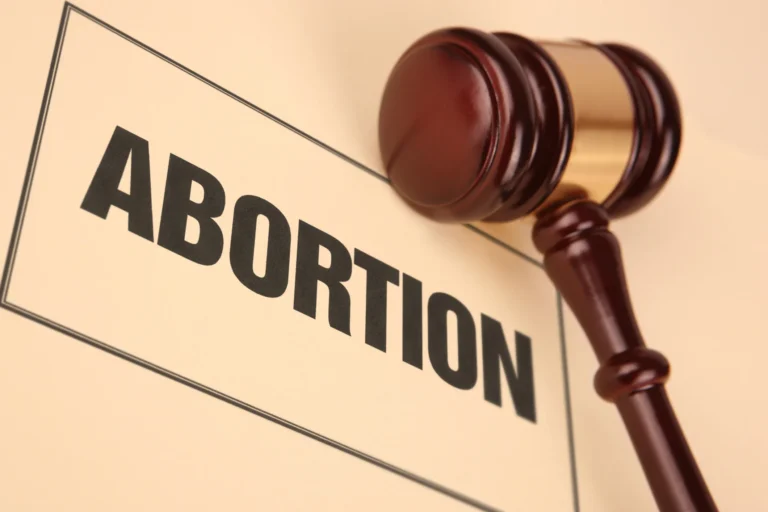March 6, 2000
Volume 2/ Number 6
Dear Friend and Colleague:
Evidence of human rights abuses in Peru’s family-planning program was obtained by investigators David Morrison and Dr. Pat McEwen, Director of Life Coalition International, during a PRI-sponsored investigation carried out in 1999 December. The following testimonies describe abuses which took place after the Tiahrt Amendment, which prohibits US funds from going to non-voluntary foreign family planning programs, was singed into law in October 1998. The following testimonies were recorded on audio and videotape. Some of the names of the victims have been changed for their protection. PRI will present its full report to Congress on 14 March 2000. Please join us at our congressional briefing on Peru’s Coercive Family Planning Programs and USAID Involvement on 14 March 2000 in Room 1116, Longworth Building, Capitol Hill, at 2:00 p.m (see media advisory).
Steven W. Mosher
President
Peru’s Coercive Family Planning Programs and USAID Involvement
Beatriz Quechaes, 34, was given Depo-Provera during pregnancy in violation of informed consent provisions. After her miscarriage, she was told she was “too stupid” for Depo-Provera, taken off that drug and put on oral contraceptives. She does not want to take the pill but has been told that if she refuses she will be sterilized. The Tiahrt Amendment prohibits US funds from going to programs that do not provide informed consent or coerce women.
Inocencia Quechaes Ayupari, 19, is currently pregnant and is being pressured by hospital staff to accept a family planning method after the delivery. She has been told there is a possibility that her baby may have to be delivered by caesarian, although none of her pre-natal examinations indicate this. She plans to resist a caesarian, and to refuse family planning, although she is not sure she will be successful in holding out. The Tiahrt Amendment makes clear that there should be no pressure from anyone to “choose a method.”
Anatolia Gayilles De La Cruz, 46, had been experiencing pain because of the presence of an IUD that had earlier been inserted against her will. This IUD was finally removed in 1999, but only after she agreed to use Depo-Provera instead. She is experiencing Depo-Provera side effect: mood swings and painfully swollen breasts. She does not want to accept the next shot (which was due in February 2000). She does not want to start using contraceptive pills or be sterilized, but fears that this will be demanded of her if she refuses to use Depo-Provera. The Tiahrt Amendment says that women cannot be threatened with the denial of a health care benefit (the removal of the IUD) to induce the acceptance of a family planning method, or otherwise be pressured or coerced.
Angelica Palomino Leiva, 30, confirmed that sterilization campaigns in Ayacucho, Peru, continued through the spring 1999. With the support of her husband, she managed to escape sterilization during an earlier campaign. Immediately after the birth of her last child, however, she found herself caught in the middle of another sterilization campaign. Alone, without the presence of her husband, Angelica was sterilized by force. Medical complications followed. Only one fallopian tube was ligated and she is currently pregnant. Angelica believes that the surgeon was so intent upon sterilizing as many women as possible that he failed to perform the surgery properly. The Tiahrt Amendment forbids quotas and coercive practices typical of Peruvian sterilization campaigns. Women cannot be forced to participate in family planning programs at a time when they are in need of other medical care (as in childbirth), and are fearful that care may be denied. Angelica was not allowed a waiting period and was not allowed to have her husband with her when she was forced to make a decision.
Alicia Munoz Valez, 34, was told by medical staff she needed a caesarian delivery, and that this would be provided gratis if she would agree to sterilization following delivery. The promised free caesarian section was clearly meant as an inducement to accept sterilization. She said yes, but she and her husband were nonetheless charged for the delivery following the birth of her baby in mid-November 1999. Alicia is still battling an infection contracted at the time of the operation. The Tiahrt Amendment states that family planning programs cannot offer bribes or incentives, cash or commodities, in order to influence women to accept sterilization.
Elena Amporia Sales, 43, was diagnosed with a prolapsed uterus and told that she needed a hysterectomy immediately. When she questioned the diagnosis, the doctor became abusive. He repeatedly called her “ignorant,” and said that she “didn’t know any better.” A doctor from the private sector later confirmed that she did not need a hysterectomy, did not have a growth on her ovary, and did not have a prolapsed uterus. She now believes that the Ministry of Health (MOH) doctor was not concerned about her health but in pressuring her to be sterilized. Under the Tiahrt Amendment, women may not be lied to or have information withheld when being asked to make family planning decisions.
Maria Lopez, 26, is a young medical worker/administrator at a MOH sub-post. Maria described how her medical post relies upon surveys of the surrounding area, taken to determine how many women of childbearing age live in the area. She said that the MOH in the region determines the number of women who are to be part of the family planning program from these statistics. Maria said she thought that an administrator would be demoted or fired if their medical post consistently failed to meet its family planning targets.
Javier Chavez, 24, is a young medical student close to completing his studies. He has worked as a family planning promoter, in the same region as Maria, as part of his training. He said that he and other medical promoters have been routinely paid 20 Peruvian Soles (about US $6.00) and rewarded with gifts of popular sports clothes whenever they gained the most new family-planning clients in a month. The testimonies of Maria and Javier reveal the mechanisms the MOH uses for its day-to-day family planning operations. Targets and quotas are forbidden under the Tiahrt Amendment.
In addition, the Peruvian ombudsman reports that instances of death after coerced sterilization have occurred recently.
The US government through USAID provides $36 million in funding for family planning programs run by the Peruvian government’s MOH and by non-governmental organizations (NGOs) working in close collaboration with the same government. USAID further supplied roughly 32,000 pounds of contraceptive drugs and devices for the year 2000 to the Peruvian government and its NGOs. USAID claims that its efforts have ensured that “contraceptives are widely available in public sector and NGO facilities…” in Peru (USAID, “Improved Health, including Family Planning…,” http://ekeko.rep.net.pe/usa/aidsale.htm 10 January 2000; ).








